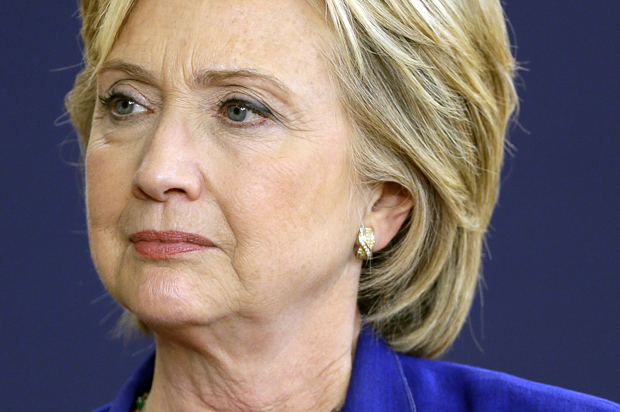In a telling clip from 2004, Elizabeth Warren recounts to Bill Moyers a meeting that she had with then-First Lady Hillary Clinton in the late 1990s to advise her on a bankruptcy bill that had been funded by the consumer credit industry, and was expected to have the president’s support. The legislation would have tightened bankruptcy laws at the expense of working families “I had written an op-ed how this would fall disproportionately hard on women who were raising families,” explained Warren to Moyers, “[who] would be put in the position under this bill of trying to compete with Citibank, Mastercard, Visa, Bank One, for getting alimony and child support from their ex-husbands.” Seeing Warren’s op-ed, Clinton asked for a meeting with the Harvard professor in Boston to discuss the legislation in further detail.
After the meeting, Warren recalled, Clinton said that the bill had to be stopped, and true to her word, turned around the administration. “President Clinton had been showing that this was another way that he could be helpful to business,” said Warren, “and when Mrs. Clinton came back with a little better understanding of how it all worked, it reversed course and they reversed course fast.” Bill Clinton’s final bill as president was the bankruptcy legislation, and he vetoed it, which Hillary would later take credit for.
When Clinton entered Senate the next year, however, the bankruptcy bill came up again, and Clinton voted in favor of it. “As Senator Clinton, the pressures are very different,” said Warren. “It’s a well-financed industry… She has taken money from the groups, and more to the point, she worries about them as a constituency.”
Now, to be fair to Clinton, it was not the same exact bill that she voted for in 2001. Indeed, Clinton had worked with other Senators to add a provision that would help women receive child support. In a speech on the bill, Clinton discussed this provision:
“While we have yet to achieve the kind of bankruptcy reform I believe is possible, I have worked with a number of people to make improvements that bring us closer to our goals, particularly when it comes to child support. Women can now be assured that they can continue to collect child support payments after the child’s father has declared bankruptcy. The legislation makes child support the first priority during bankruptcy proceedings.”
While this bill had certain provisions, it was still widely opposed by unions and consumer groups, but as Warren noted, the financial industry was a part of Clinton’s constituency, as a senator representing New York.
(That bill would ultimately go down, but similar legislation was finally passed by Congress — without Hillary, who was not present for the vote — and signed into law by President George W. Bush in 2005.)
Some may argue this story reveals how Clinton lacks principle, and is yet another example of her flip-flopping; but the fact that she managed to add important provisions to help women and children does show what her supporters have always said: she is a champion when it comes to fighting for women’s rights. Indeed, this is one area where no one can really doubt her authenticity.
But what this story really displays is the amount of influence that Hillary Clinton had in her husband’s administration. Everyone already knows this, of course, but it does seem like whenever progressives point to the many reactionary and neoliberal policies that the Clinton administration put forth, Hillary supporters are quick to say she is not her husband and that it’s offensive to even mention his administration. Of course, she is not her husband, and she is certainly more liberal than he ever was. In fact, it can be said that they have both “evolved” over the years, and the former president has been quite vocal about his regret of various policies, including the Defense of Marriage Act and his administrations decision not to regulate derivatives.
However, this does not mean this history is off limits. Clinton may voice regret today, but when he was president, it was all very opportunistic, and it is easy to evolve on issues later on when they are more politically convenient. The same can be said for Hillary, who has evolved on many issues, such as gay marriage, only when it became acceptable among more Americans. “Today, some are trying to rewrite history by saying they voted for one anti-gay law to stop something worse,” said Sen. Bernie Sanders (I-VT) on Saturday, in response to Clinton’s claim the previous day that DOMA had been a “defensive action.” When you look at Clinton’s stance on gay marriage not to long ago, it is pretty clear that she wasn’t being very honest. “I believe marriage is not just a bond but a sacred bond between a man and a woman,” said Clinton in 2004, nearly a decade after DOMA had been passed.
When Sanders spoke of his history on Saturday, saying that he would not govern based on polls but principles, it was a legitimate contrast to draw. Sanders was a true progressive when progressivism was out of style back in the ‘90s, while Clinton has become increasingly progressive as more Americans have shifted to the left.

